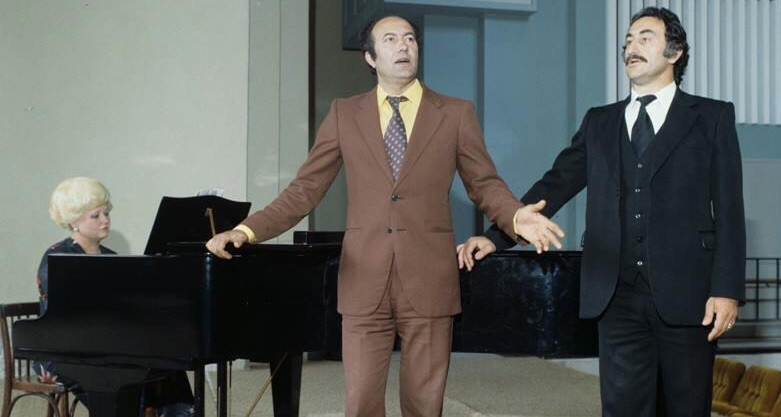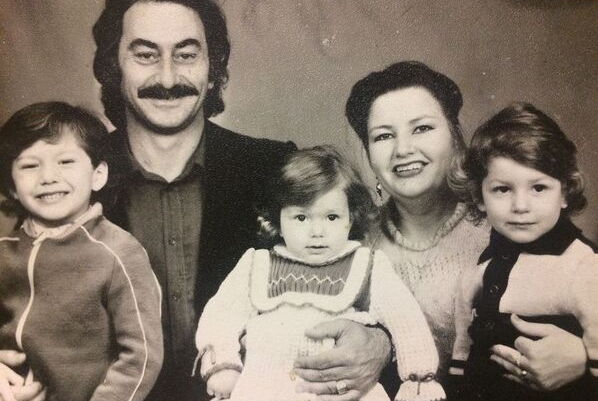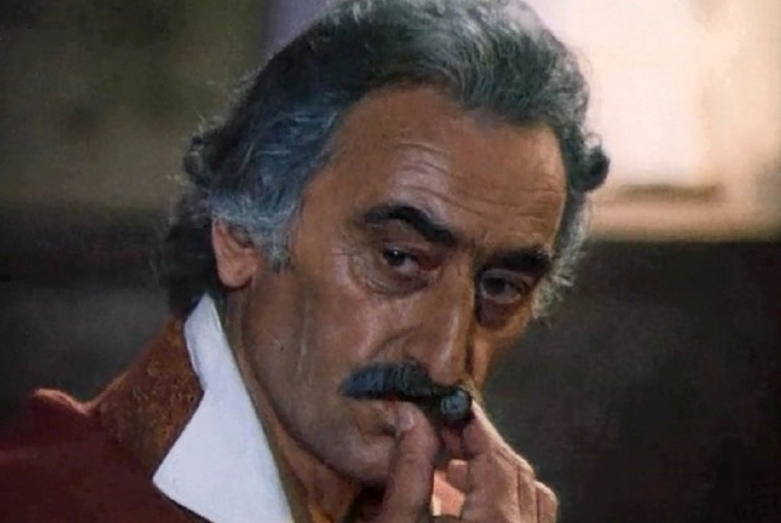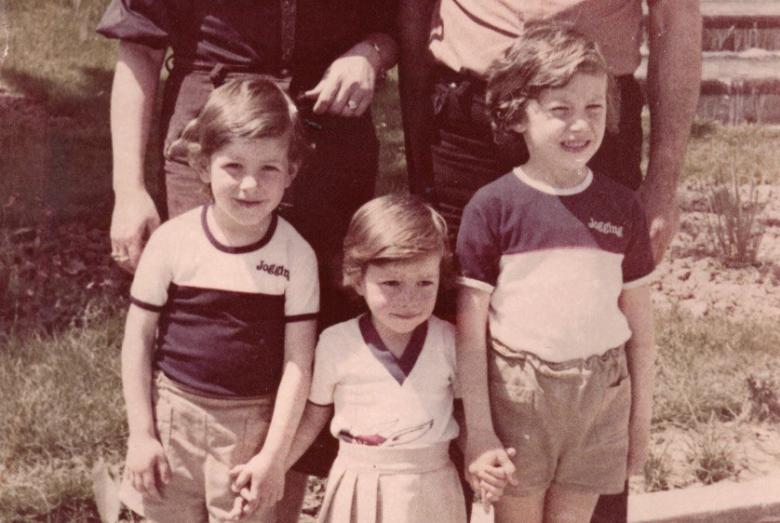The WAC Infoportal prepared an essay about the life and fate of the People's Artist of Abkhazia, the film actor Thomas Kokoskir to his birthday.
Alisa Khutaba
In a noisy cafe on the promenade, not far from the famous Brekhalovka, a small group of artists are drinking coffee. They have already traveled half the world and are merrily planning to visit the other half. They fervently recall how from the stage in Mozambique they could not see the faces of the audience in the dark hall - they sang and danced for colored shirts. They remembered how Lolita Tores entered the cabin of the plane and most of the male half of the ensemble fought for the attention of the famous Argentine actress. Artists speak exclusively their native language and dream of how to glorify their small homeland by bringing its culture to the world. There are new tours ahead, new adventures... but this tour will be the last for many participants. One of them is the hero of our essay, the best baritone of Abkhazia, people's artist, film actor Thomas Kokoskir.
Childhood and youth
On July 22, 1942, in the village of Bzyb, Gagra district, a boy was born into the Abkhazian family of Kuta and Maria. They named him Victor. But it happened so that for everyone he was Thomas. He was also called Chygu (Ҷыгә - means diligent, neat, well-ordered - ed.). After graduating from the Bzyb school, he entered the Sukhumi Industrial College. Then the Gnesins Moscow Musical and Pedagogical Institute for the specialty "teacher - vocalist". After graduating in 1973, he became an actor at the Stanislavsky and Nemirovich-Danchenko Moscow Musical Theater. His repertoire included roles from Mozart's Le Nozze Di Figaro, Donizetti's Don Pasquale, La Traviata and Un Ballo in Maschera by Verdi.
In 1974, Kokoskir returned to Sukhum, where he became a soloist of the Abkhazian State Philharmonic Society named after Razhden Gumba, then a leading soloist of the State Honored Song and Dance Ensemble of Abkhazia. At the same time, he performed solo and in the Raida variety ensemble. He sang both the classical repertoire and folk songs.
"How could I not remember him before"
The velvety sound of the baritone distinguished Thomas among his colleagues, especially in combination with charisma and his inherent external data: an elegant look, a slender body, burning black hair, a thick mustache and a courageous face gave him a special charm. It was the unusual appearance that attracted the eminent director Vladimir Savelyev when choosing the protagonist of the film "White Hood". Long and painfully choosing an actor for the role, the director asked his assistant and adviser on the creation of the film, Anzor Mukba, to help him choose a type suitable for the role of a brave and proud peasant who cares for his people. Going through all kinds of applicants among actors and dancers in his head, Anzor, who knew Bagrat Shinkuba's poem "The Song of the Rock" well, on which the film was staged, strongly convinced the director that only a true Abkhazian was needed for this role. He was sure that no representative of another national identity and culture could subtly and honestly convey the image of the hero, get into the hearts of viewers, bring fame to the film and its director. On one of these days, in the Samson Chanba theater, in a hall overflowing with spectators, a singer of the state song and dance ensemble takes the stage.
"Here he is! How could I not remember him before!" Anzor thought about Thomas, and happily informed Savelyev that there is an perfect person in image and spirit, and he has to get to know him.
So it was - after talking with a friend, a baritone, Anzor brought the director to the artist. After that, things went very smooth. The Arts Council approved Thomas for the role without hesitation. Then there were filming, trips. Well-paid shooting days allowed him to make good money, and he often allowed himself to invite everyone who worked on the film to dinner - from the lighting master to the drivers. Appreciating every person, treating everyone with respect was a characteristic feature of Thomas.
One can speak a lot about the glory of the film and its hero. Allow me to continue the essay and call our hero by two names, so merged into a single whole, because the main association with the name of Thomas Kokoskir forever became the name of Hadzharat Kyakhba. In 1975, the film "White Hood" was presented in the Soviet Union. It became one of the leaders of the box office, covering more than 20 million viewers. There movie also was in a wide foreign box office.
The film was very well received. Hadzharat Kyakhba won the love of the audience and received critical acclaim. His image became the personification of a truly national hero and a symbol of freedom.
"I watched the movie "White Hood" and was greatly impressed and first of all by the main character. He conquered me with everything ... Freedom-loving, unbending, infinitely devoted to the Motherland, the people of the mountains ... The actor played Hadzharat so penetratingly, vividly that it is difficult to separate one from the other. The son of his land, who absorbed the best from the ancestors of the mountains .... I read in one of the comments: "Highlanders are power and strength ..." And this is so true about Hadzharat .... And, obviously, about the actor himself ... The heroic death of Hadzharat deeply wounded the heart. Too bad the movie is of poor quality. I would love to watch it again…"
"I was especially impressed by the main actor Thomas Kokoskir, who shows his character in such a way that he is trustworthy, and not as an unattainable idol." - (East German newspaper "Freie Welt" 1976 - ed.).
"Bring Your Nina"
The already famous Abkhazian actor has now become an even more eligible bachelor. Needless to say, how many fans were around Thomas, how many brides were promised to the legendary Hadzharat by friends and relatives. However, as it turned out, his heart was already fluttering and breathing with feelings for a Ukrainian girl named Nina. He met Nina in a student hostel. Common interests quickly brought young people together. Nina studied at the Ippolitov Ivanov Music College. However, a bride of a different nationality was not immediately approved by his relatives. Only ten years later they surrendered to the feelings and endurance of Thomas with the words: "ok, bring your Nina!"
So, Hadzharat Kyakhba started a family. Three children were born in a happy marriage. The firstborn was given the name Hadzharat. Then Alkhas and Maria were born. Already adult children remember their father with awe and excitement. They tell how their father loved to read the encyclopedia and the latest issues of the Vokrug Sveta magazine to them, how they arranged family concerts and spent warm and cheerful evenings with the family, how the father was close to each of them and in a special way with the youngest Maria.
Famous acquaintances
Hadzharat was not the only Thomas' role. He played a minor, but very memorable role in the film by Vladimir Popkov "Hearts of Three". The film was made by the Dovzhenko Film Studio. Here he played the role of Enrico Solano, the father of the protagonist of Jack London's novel.
Famous actors Alena Khmelnitskaya, Sergey Zhigunov, Vladimir Shevelkov, Igor Kvasha and others easily found a common language with the Abkhazian actor, and later some of them came to visit him in his homeland and rest. In other matters, Thomas could boast of many other famous friends and buddies. Fazil Iskander himself also visited him. The meeting was remembered for long sincere conversations and various treats. The guest especially appreciated the salmon caught and cooked by the owner of the house. The passion for hunting and fishing occupied a significant place in his life. So, he rested, making kilometer hikes and spending time fishing. He liked to share his prey, to treat relatives and friends.
Tomorrow was the war
In August 1992, the State Song and Dance Ensemble went on another tour to Greece. Crowded halls applauded extraordinary artists from Abkhazia. Full houses, storms of applause, new invitations, stage life in full swing. Like a bolt from the blue comes the news that native Abkhazia has been on fire for 10 days already, Sukhum is in the hands of the enemy. Contracts, obligations, spectators, tickets sold out far in advance ... Men are at a loss, girls are in tears, the hour of entering the stage, the audience is waiting. But with what soul? With what heart? Thomas gives a speech he feels obligated to give. It is about the fact that there is a front here, and they have no right to let down the spectators who trusted them this evening. Having honored with a minute of silence those whose names have already gone down in history in the struggle for the Motherland and justice, having raised the audience to their feet, the ensemble begins its concert. In the morning, as quickly as possible, they begin to leave Greece. After all, there is war at home, families, first dead ones. Upon his return, Thomas leads a militia unit of the village of Bzyb. Through all the hardships and horrors of the war, he leads the villagers, friends and brothers who trusted him to the bitter end.
For the last time
1994, the war is over. Events for a long time do not allow to relax the reins, keep in tension, require presence, heroism, and endanger .... The internal state of the commander himself is very disturbing. Before another trip to the border with Georgia, Thomas visits the closest people in his native village of Bzyb. He visited the elders of his kind, and the younger ones, and only later it will be clear that it was ... farewell. The premonition did not leave his thoughts, but love for the Motherland, for the people, for fellow soldiers, and simply upbringing did not allow him to refuse the trip. On the way, he makes a short stop in Sukhum, at the Philharmonic. Having hastily talked with friends from the ensemble, Thomas promises that this is the last time, and soon he will return to his beloved work, to the stage and the team.
At the age of 51, on their way to the border, Thomas and his friends were blown up by a mine. An unknown vehicle blocked the way - the driver ran out of gas. Thomas did not hesitate to decide to help. He pulled over to the side of the road, but who could have foreseen that these few meters separated his life from death.
"People like Thomas should have been protected… saved," family friend Anzor Mukba says sadly.
These heroic, bright, funny and sad episodes from the life of a wonderful person are just a small part of a great life. With longing, you think how much more could and should have been retold, passed on to the next generations by such a talented artist and kind person. To feel our hero, we talked a lot with his friends and family. They unanimously said that such people no longer exist. We watched films with his participation, and understood ... there are no more such heroes. We looked at the family archive of photographs and understood that for this family there is no such father and husband anymore. We listened to his wonderful baritone and understood that this voice is unique - there is no other like him.
Recording of songs performed by T. Kokoskir (from the archive of the Abkhazian radio)
"Let it all burn"
Thomas loved to in any situation "Амца аҧырҧырҳәа иахысаат". It is hardly possible to translate it into another language, preserving the depth of meaning and feelings. This is something like "let it all burn," which he said quickly, brightly and fervently and this is the way he lived - quickly, brightly and fervently.
P.S. There is one more little story, which may not have such a sacred meaning, but it seemed to me that the fact is very interesting. Thomas had several dogs, and he gave them all one nickname - Dzhulbars. Intrigued, I discovered an unexpected fact. As it turned out, the history of a dog named Dzhulbars is well known. Among the four-legged mine detectors, who distinguished themselves during the Great Patriotic War (1941-1945) and immediately after it, there were their own heroes, whose nicknames went down in history. Thanks to a phenomenal instinct, the dog of the mine-detecting service Dzhulbars saved people. And perhaps Dzhulbars also had to find the very mine that ended the life of our Thomas in an instant, but it was not there ..




to login or register.